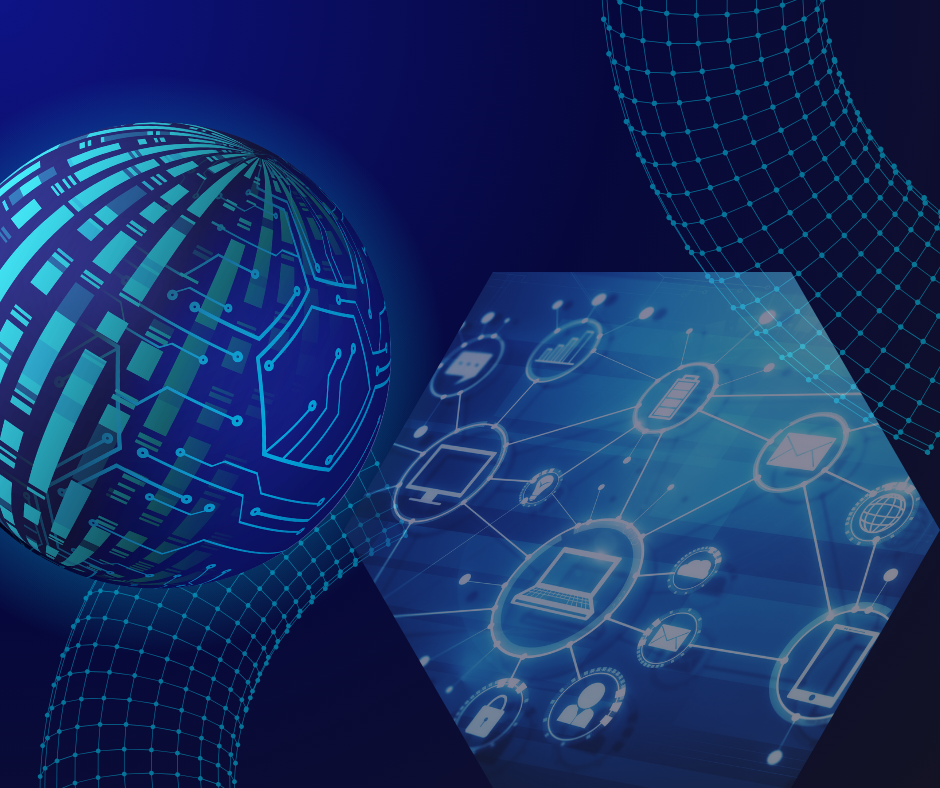What is blockchain?
Blockchain is a method of recording information that makes it impossible or difficult for the system to be changed, hacked, or manipulated. A blockchain is a distributed ledger that duplicates and distributes transactions across the network of computers participating in the blockchain.
Blockchain technology is a structure that stores transactional records, also known as the block, of the public in several databases, known as the “chain,” in a network connected through peer-to-peer nodes. Typically, this storage is referred to as a ‘digital ledger.’ Every transaction in this ledger is authorized by the digital signature of the owner, which authenticates the transaction and safeguards it from tampering. Hence, the information the digital ledger contains is highly secure. In simpler words, the digital ledger is like a Google spreadsheet shared among numerous computers in a network, in which the transactional records are stored based on actual purchases. The fascinating angle is that anybody can see the data, but they can’t corrupt it.
Blockchain in Education
The realm of education has continuously evolved, adapting to the changing landscapes of technology. In recent years, innovations in Blockchain Technology have shown tremendous promise in revolutionizing the educational sector. This groundbreaking technology, most commonly associated with cryptocurrencies, holds the potential to transform various facets of education, offering transparency, security, and efficiency.
In education, this technology opens up a multitude of possibilities. Let’s delve into how blockchain can reshape education and its myriad applications within the sector.
Secure and Verifiable Credentials
One of the most promising applications of blockchain in education lies in managing and verifying credentials. Traditional paper-based certificates and transcripts are susceptible to fraud and forgery. By utilizing blockchain, educational institutions can issue digital credentials that are immutable and tamper-proof. Students’ academic records, certifications, and achievements can be securely stored on the blockchain, providing instant verification and eliminating the need for intermediaries.
Streamlined Administrative Processes
Blockchain streamlines administrative processes within educational institutions. Smart contracts, self-executing contracts with predefined conditions, can automate various tasks like enrollment, fee payments, and course registrations. This reduces administrative burdens, minimizes errors, and ensures transparent and efficient operations.
Transparent Assessment and Evaluation
Incorporating blockchain in assessments and evaluations can enhance transparency and fairness. By recording assessment results and grading criteria on a blockchain, educators can ensure that grading processes are transparent and accessible to all stakeholders. This transparency fosters trust and confidence in the assessment system.
Decentralized Learning Platforms
Blockchain facilitates the creation of decentralized learning platforms. These platforms incentivize both educators and learners through tokenization and smart contracts. Students can earn tokens for completing courses or contributing to the platform, while educators can receive tokens based on the quality of their content or teaching. This model encourages participation and rewards contributions, creating a vibrant and inclusive learning ecosystem.
Challenges and Considerations
Despite its immense potential, the adoption of blockchain in education faces challenges. Integration with existing systems, scalability, data privacy concerns, and regulatory frameworks are some hurdles that need addressing. Moreover, the technology is still in its early stages of implementation, requiring collaboration between stakeholders for widespread adoption.
Conclusion
Blockchain technology holds the promise of transforming education by enhancing security, transparency, and efficiency. Its applications, from secure credentialing to decentralized learning platforms, have the potential to reshape the educational landscape. However, successful implementation requires collaboration between educational institutions, technology experts, policymakers, and stakeholders to overcome challenges and unlock the full potential of blockchain in education. As the educational sector continues to embrace innovation, blockchain stands as a beacon of hope, offering a transformative path towards a more secure, transparent, and accessible learning environment. The journey towards its integration may be complex, but the rewards it offers for the future of education are indeed promising.
